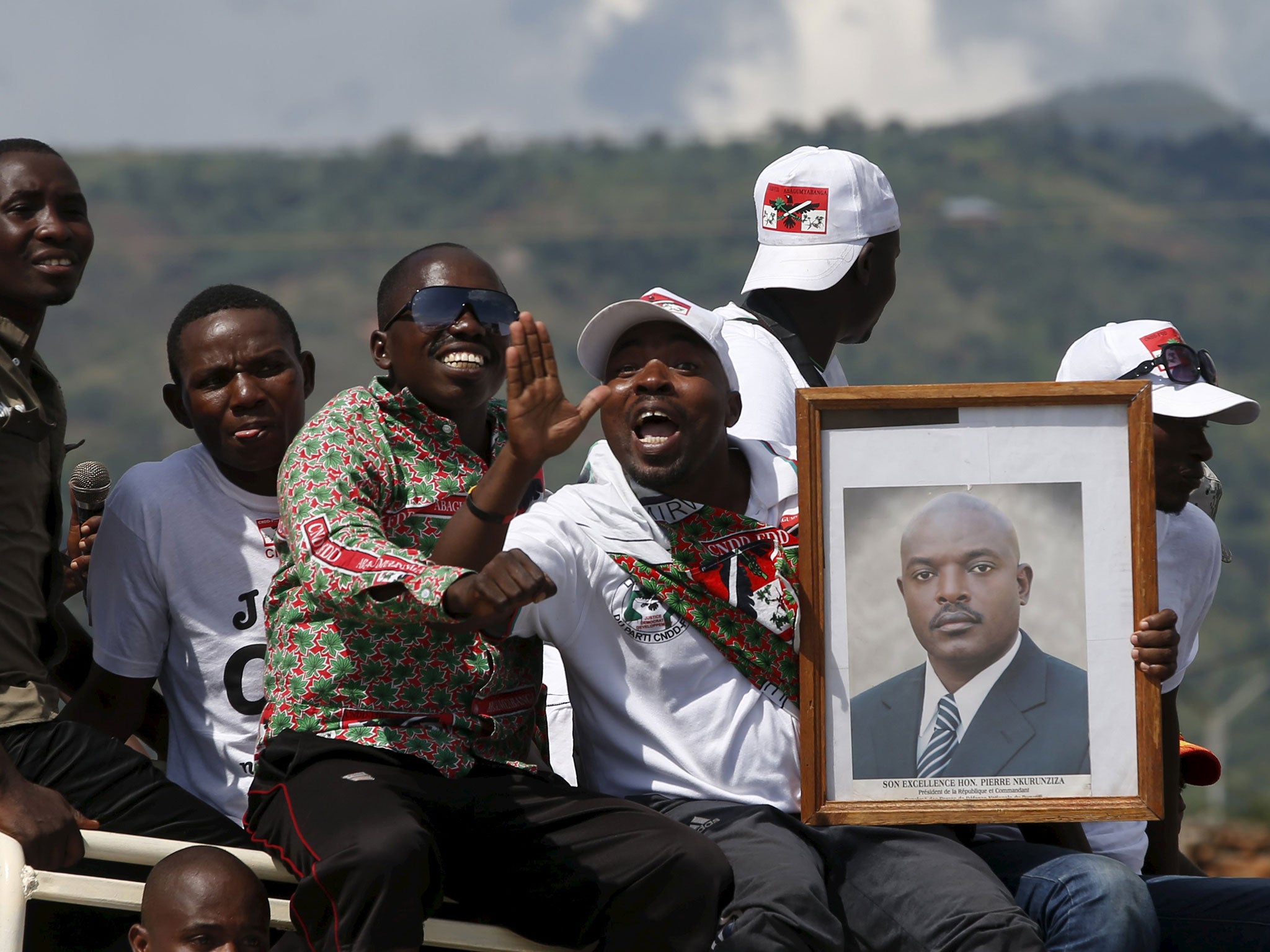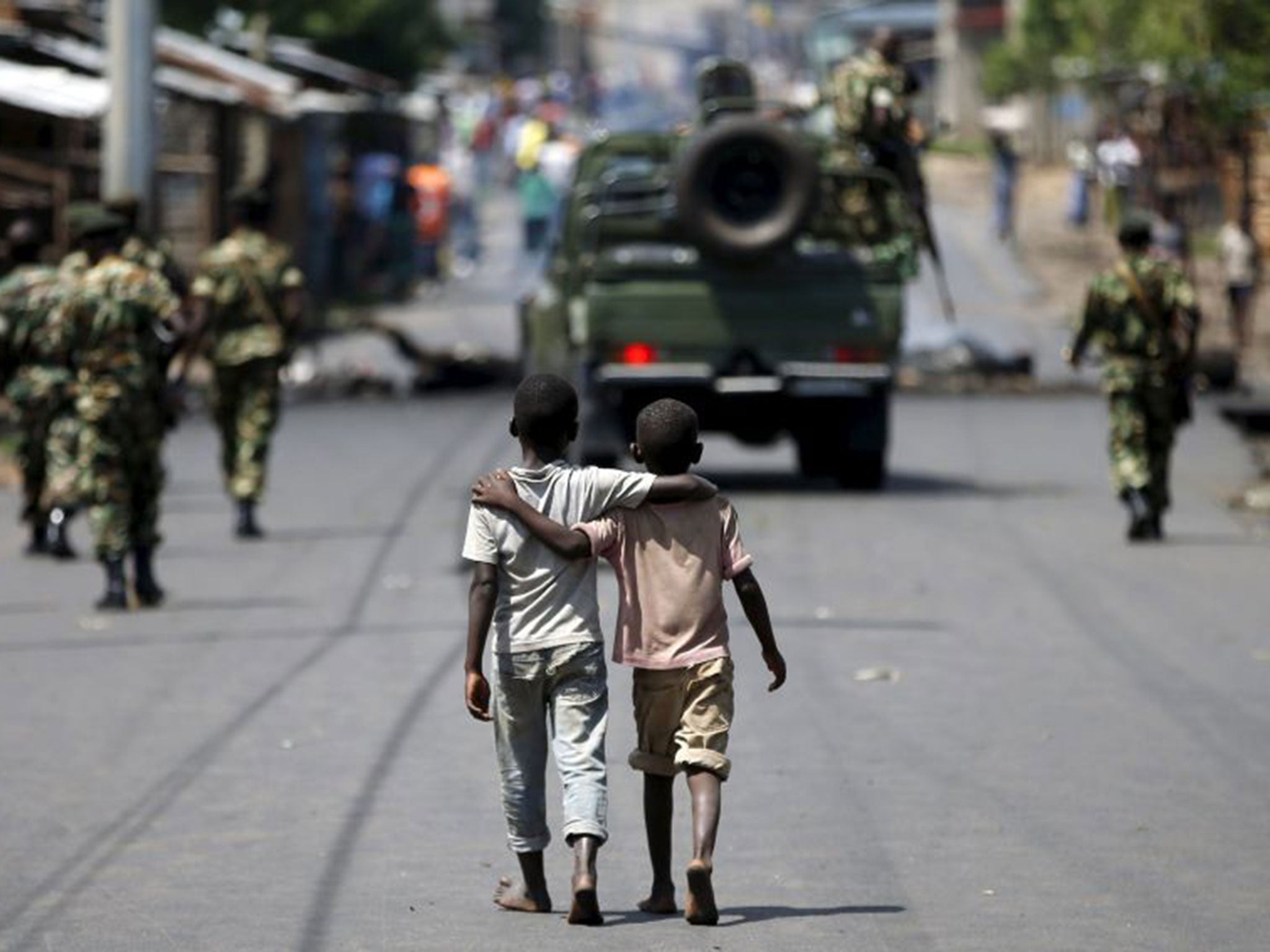Burundi coup: Confusion reigns as President Pierre Nkurunziza tries to regain control following arrest of generals
Leaders of the failed coup have been rounded up, but protests continue in the capital

Burundi President Pierre Nkurunziza is struggling to shore up his shattered authority in the central African nation after loyalist forces rounded up the renegade generals behind a failed coup to depose him.
Mr Nkurunziza was attending an emergency summit in Tanzania when General Godefroid Niyombare, a respected former army chief, attempted to seize power, and for more than a day pro-coup forces prevented the President’s return to Burundi. In an address to the nation, Mr Nkurunziza denounced the attempt to depose him, and linked protesters opposed to his bid for a third presidential term to the coup plotters.
His message signalled that he would continue to crack down on street protests calling for him to step aside in June elections in line with the constitution that limits the president to two terms. His determination to stand again has raised concerns that he considers himself no longer bound by peace accords that finally brought peace to Burundi in 2005 after an ethnically charged 12-year civil war that left more than 300,000 people dead.
As Mr Nkurunziza arrived back in the capital, Bujumbura, from his home town in the north where he had spent the night after stealing back into the country, the whereabouts of General Niyombare remained disputed.
The general, who lost his job as the country’s intelligence chief in February after advising the President not to seek a third term, told Agence France Presse on Friday that he intended to give himself up. “We have decided to surrender,” he said in a telephone interview after loyalist forces held off pro-coup forces at key institutions. “I hope they won’t kill us.” A spokesman for the Presidency confirmed that they had arrested General Niyombare along with three of the other ringleaders. He would not be drawn on their potential fate, but said they would be “answerable” to the country’s justice system. “He has been arrested. He didn’t surrender,” he said.
In the absence of radio or television broadcasts, the confusion in Burundi is complete, with those living outside of the capital almost entirely in the dark about the events of the past couple of days. Analysts warn that the situation in Burundi still remains very volatile.
It is unclear to what extent Mr Nkurunziza, a former rebel leader from the Hutu majority, can claim loyalty from the armed forces. The army, a patchwork of Hutus and Tutsi, has long been a symbol of the country’s ability to overcome its ethnic strife, but the failed coup has exposed deep divisions within it.

Although the power struggle had been a political, not an ethnic, one, analysts fear that the ethnic divisions between the Hutu majority and Tutsi minority – a similar ethnic make-up that led to the Rwandan genocide in 1994 – could be exploited if the political crisis continues.
The United Nations says that more than 105,000 people have fled the country, fearing reprisals from the ruling party’s youth wing, the Imbonerakure. The youth militia, which acts with considerable impunity, has been increasingly deployed to shore up the President’s rule, brutally targeting dissenters and, some claim, the Tutsi minority.
Join our commenting forum
Join thought-provoking conversations, follow other Independent readers and see their replies
Comments